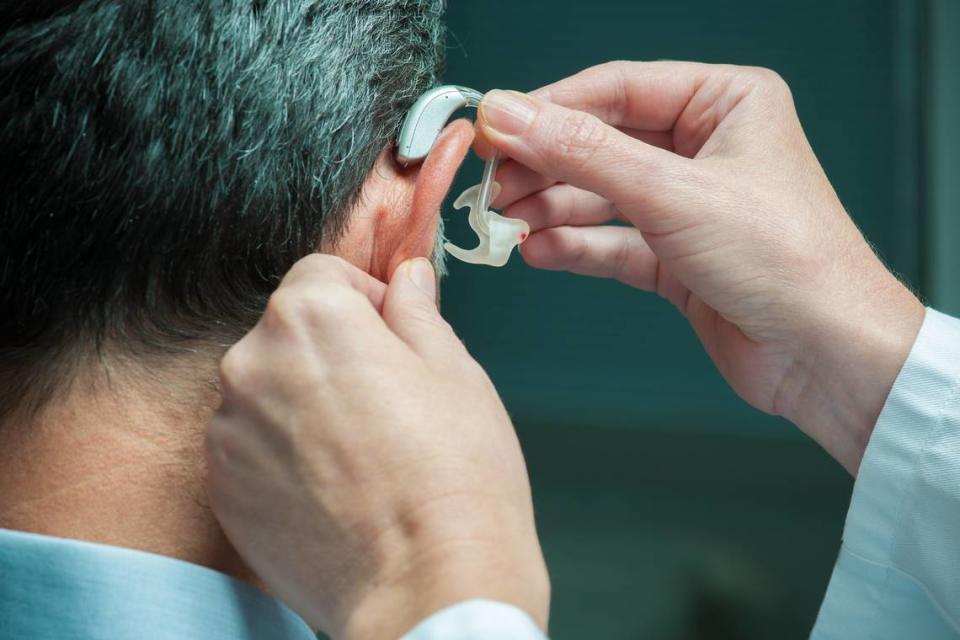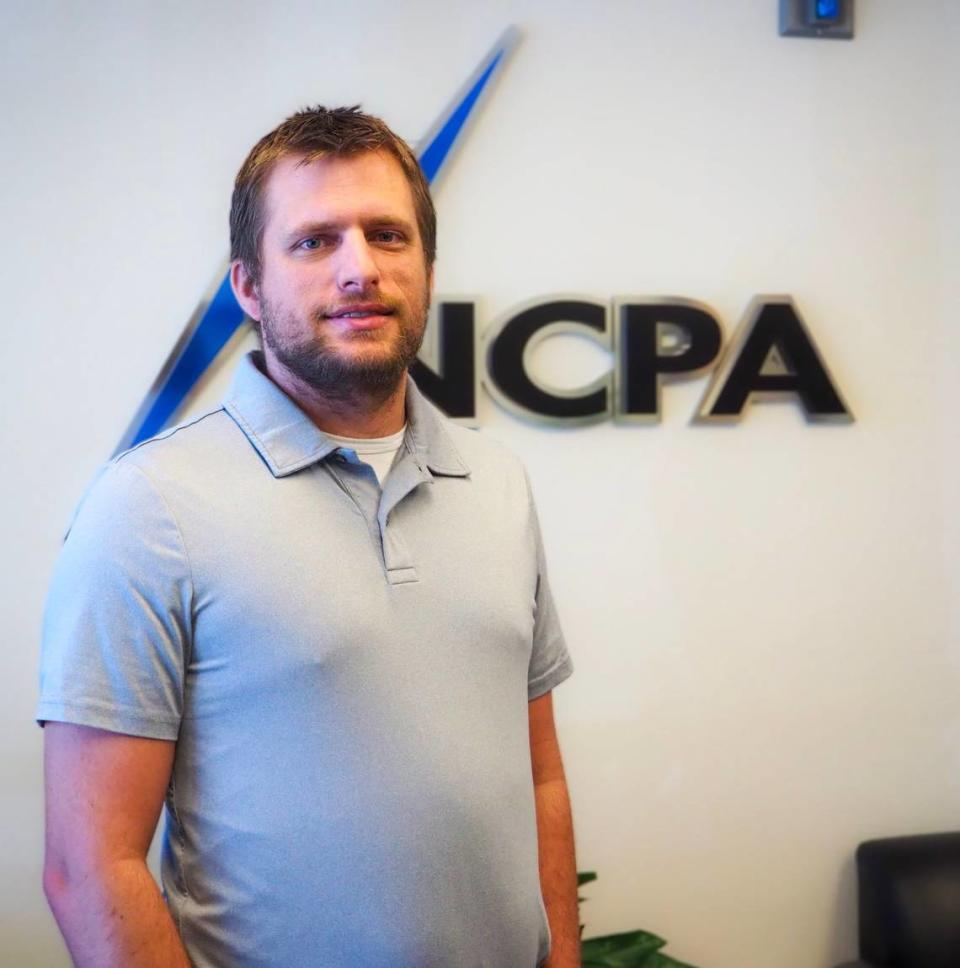Growing up deaf in California means traversing two worlds: the hearing and deaf | Opinion
I was born completely deaf in one ear and mostly deaf in the other. My mom learned this by noticing that I didn’t respond to loud noises, like banging pots and pans. Mom then got my hearing tested and learned all she could to help me. By age three, I was fitted with hearing aids, though I didn’t notice much difference in how I was treated — or how I viewed the world — until I went to elementary school.
That’s where I learned that there are two distinct worlds in which a hard-of-hearing person has to live: one with other Deaf folks and one with hearing people. (In the Deaf community, the capital “D” is used to signify people who have been deaf all their lives and use sign language.) I struggled with my identity for a long time as I traversed my two worlds. Only later would realize how much that struggle shaped my life.
Opinion
Up until my early 30s, I always wanted to be considered “normal” in the hearing world. This was a consequence of being sent to the special education room in elementary and middle school. It was there I received “enhanced assistance.” I could also request teacher aides or sit in the front of the classroom to ensure that I could hear.
At around age 7, I was fitted with a “BiCros” hearing aid system, two hearing aids connected by a thick, beige wire. The idea was that one ear would have a microphone to pick up audio and mesh it to the other. I disliked this as it didn’t seem to work, and it also made my hearing impairment more obvious. I was teased and kids would pull on the wire. I stood out with my hearing peers in a homogeneous white community where any difference in appearance or abilities was magnified.
Around that age, I also attended Deaf Camp. It was viewed by my parents as a place where I could socialize with Deaf kids and learn American Sign Language. Here, how we looked was not emphasized. Neither were our abilities in sports or academics. The diversity of students was enlightening and fascinating. The ease with which I could understand others in group settings was night and day compared to standing out in a classroom full of hearing students.
It was at Deaf Camp where I learned about the California School for the Deaf in Fremont. It sounded like a place I could belong. I asked my parents if I could attend but for reasons unknown to me, I did not go. Maybe because it was two hours from where I grew up, or maybe it was because, as time went by, it became clear that I was being prepared for living in the hearing world.
When I was in fifth grade, my best friend who was also hard-of-hearing was killed in a car accident, leaving in me a deep emotional wound. The absence of my friend left a gap in how I could learn adaptive strategies while living in the hearing world. After that, I struggled at school and at home during both middle and early high school. I insisted that I should be treated as a normal student without any special assistance. And by the seventh grade, I stopped attending the Deaf Camp that I had loved so much.
In high school, I started thinking about career choices, but most of the jobs that interested me required some component of hearing needed for a successful career. Being an FBI agent, joining the military, being a firefighter or working in a U.S. Embassy were all fascinating to me, but also beyond my reach.
I was inspired by a sign language professor to attend Gallaudet, the liberal arts college for the Deaf in Washington D.C. My brother was deployed to Iraq in 2003, and I wanted to understand why and get involved diplomatically. I picked the University of California at Davis, as they were well-known for their International Studies Department.
UC Davis reaffirmed my love for a diverse environment. My French classes didn’t progress as much as I needed to in order to graduate “on time,” and when I was offered the chance to take sign language at UC Berkeley I declined. I almost committed to serving a Peace Corps mission in West Africa, but due to political instability and my hearing impairment I declined this opportunity, too.
I continued to struggle with my identity and still considered myself “hard of hearing.” I longed for social interactions in group settings and developed destructive behaviors that led to bad decisions in my 20s. Eventually, I pursued a career in technology where I could talk to computers in a group setting.
I became employed at Purple Communications in Rocklin, a company that provides video relay services and interpreters for the Deaf. I worked in the support group, which consisted mostly of Deaf people. It felt immensely comfortable to work in an environment where the preferred method of communication was visual. Nuances in etiquette among co-workers were respected, and the stress of hearing was absent for large parts of my day.
During that time, my hearing aid was broken for a period of three months. With prior hearing aids, I could get them fixed in a matter of weeks and just live with inefficient communication. This time it was different. The length of time without my hearing aides made it difficult to communicate effectively with my hearing wife at home. I also realized I was enjoying the conversations I had with my Deaf co-workers, and was notably more hesitant to engage in my home life.
During this time, my hearing levels dropped, which caused more doubts about my future in the hearing world. My hearing aid came back, but I changed my perspective about my identity: Without my hearing aids, I am deaf.
My wife helped persuade me to buy a new pair of BiCros wireless hearing aids for around $5,000. They are much more effective 30 years later than when my hearing classmates used to tease me for wearing them. They also have wireless phone connectivity. My favorite feature is the mute button. I still work, socialize and live in the hearing world.
Without modern tools, my life would be completely different. I am not hard of hearing or hearing impaired — I am Deaf.
Recently, I was distressed to read about how the California School for the Deaf in Fremont is having trouble retaining teachers and has seen steep enrollment drops. CSD Fremont is “the only Northern California school where deaf students can fully immerse themselves in Deaf culture and language,” according to The Bee.
Building resilience in our kids to be able to face adversity is critical. Part of that resilience is to embrace your identity in the Deaf community. Identity is part of the proud tradition of being Deaf — and it’s for good reason too, as the nuances in communication and social understanding are foundational teachings of being Deaf.
I urge policymakers to help the only Northern California school for the Deaf. The next generation of Deaf employees will soon enter the workforce in California and we have to act so that the jobs of the future can embrace Deaf individuals.
Craig Merry is an IT developer and administrator for the Northern California Power Agency who currently resides with his wife and two young boys.



